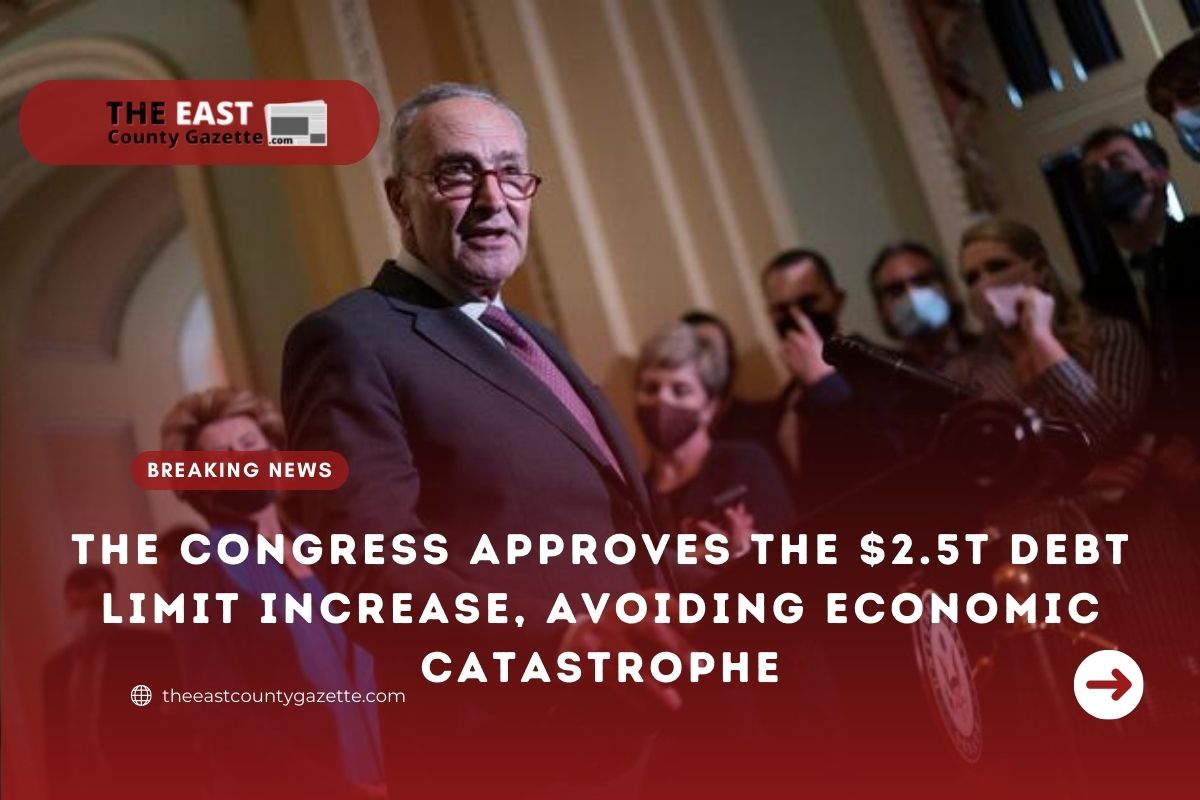During the late hours of Tuesday night, the House raised the debt limit to almost $31 trillion. Joe Biden receives the document in time to prevent an adverse economic impact.
Despite an apparent narrow vote, the House passed the measure on 221-209 votes, ending a threat that the Treasury Department would exhaust its ability to pay interest on the nation’s $29 trillion in loans by Wednesday.
After the nation’s two-year debt waiver expired at the end of July, there was a dispute over how to deal with the borrowing cap. But the final passage vote ends more than four months of economic uncertainty.
Increased debt limits will “spare families the pain of a catastrophic default” and “uphold the full faith and credit” of the United States, Pelosi told Congress before a vote.
As a result, the debt limit would be increased by $2.5 trillion, the amount that would last into 2023 without requiring another vote on raising borrowing limits. This would enable Democratic candidates to make it through midterm elections in 2022 before they have to raise the ceiling again.
Minority Leader Mitch McConnell and Majority Leader Chuck Schumer struck a bipartisan deal earlier Tuesday that allowed Democrats to advance the measure with a simple majority.
“Responsible governing has won on this exceedingly important issue,” Senator Schumer explained on Tuesday. “The American people can breathe easy and rest assured there will not be a default.”
Despite this, not every Democrat agreed with the party-line vote. Georgia Sen. Raphael Warnock said over the weekend that he thought of how great it would be if the stalled voting rights legislation should receive the same filibuster-proof status as this recent bill had received. The senator ultimately voted for a debt limit increase.
Despite Schumer’s comments that raising the nation’s borrowing limit “is about paying debt accumulated by both parties,” Republicans contend that it is a means for the Democrats to increase deficit spending. GOP lawmakers argue that debt limit increases are what boost inflation.
“Washington Democrats’ printing, borrowing, and spending addiction is directly hurting American families,” McConnell said.
“If they jam through another reckless taxing-and-spending spree, this massive debt increase will just be the beginning.”
Defending his decision for voting to raise the country’s borrowing limit, the Kentucky Republican tagged his colleagues across the aisle. One thing to note is that the minority leader was instrumental in getting the debt limit raised by garnering enough Republican votes to give Democrats a one-time reprieve from filibuster for the debt issue last week.
For decades, lawmakers from both parties were expected to work together to raise the debt ceiling. This is because the borrowing is a result of both Republican and Democratic policies.
Nonetheless, Republicans now deny any responsibility for stopping the country from hitting the limit. According to the GOP, Democrats should be solely responsible for the debt crisis.
This is because they (the Dems) plan to use the budget reconciliation process to approve trillions of dollars of new spending without the GOP’s backing. Many Republicans are also concerned about the magnitude of the national debt.
Sen. Bill Hagerty (R-Tenn.) announced that he is “extraordinarily concerned” to see about the debt limit being raised above $30 trillion for the first time in American history and “to see the debt going up to a level that exceeds our GDP.”
In recent years, United States debt has surpassed the country’s gross domestic product, which reached $23 trillion according to the Commerce Department.

